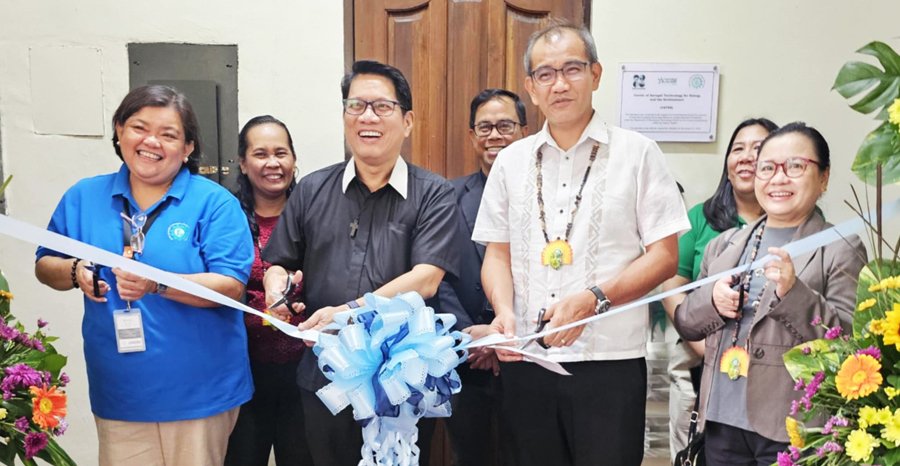Officials of the Department of Science and Technology (DOST) and the University of St. La Salle (USLS) inaugurated the first-ever aerogel hub in Negros Occidental yesterday.
The Center of Aerogel Technology for Energy and Environment (CATEE) is focused on utilizing aerogels, known for their lightweight and insulating capabilities, to create practical applications to improve the environmental and sustainability efforts in Western Visayas.
The new laboratory was funded through the Institution Development Program (IDP) of the DOST-Philippine Council for Industry, Energy, and Emerging Technology Research and Development (DOST-PCIEERD), amounting to P4.9 million.

It houses state-of-the-art facilities for research and development initiatives on advanced materials.
“Exploring the potential of advanced materials is a promising development for the scientific community,” Secretary Dr. Renato Solidum Jr. said in a statement from the DOST-PCIEERD.
“DOST is proud to support initiatives like this, as we are committed to positioning the Philippines as a competitive player in the global advanced materials sector,” Solidum added.
“Advanced materials, such as nanomaterials and aerogels, have significant potential for creating innovative solutions to the pressing environmental challenges we face,” Dr. Mary Ann Torres Pandan, project leader of CATEE and a USLS professor, said.
Pandan explained that advanced materials can enhance sustainability in the province by integrating them into environmental remediation and resource recovery, which could benefit Negros Occidental’s sugar industry.
The province contributes 60 percent of the country’s sugar production.
To further its R&D efforts on advanced materials, USLS’ CATEE collaborates with the two DOST-supported projects, the University of San Agustin Center for Advanced Materials, Engineering, and Emerging Technologies and the University of Mindanao Center for Green Nanotechnology Innovations for Environmental Solutions.
As of 2024, the DOST-PCIEERD has funded 55 IDP projects, seven of them in Western Visayas, and invested a total of P278 million.
“Since 2015, we have successfully launched IDP projects across every region in the Philippines. By providing support for the establishment and upgrading of research laboratories and facilities, we aspire to strengthen the country’s R&D capabilities,” DOST-PCIEERD executive director, Dr. Enrico Paringit, said. ||




